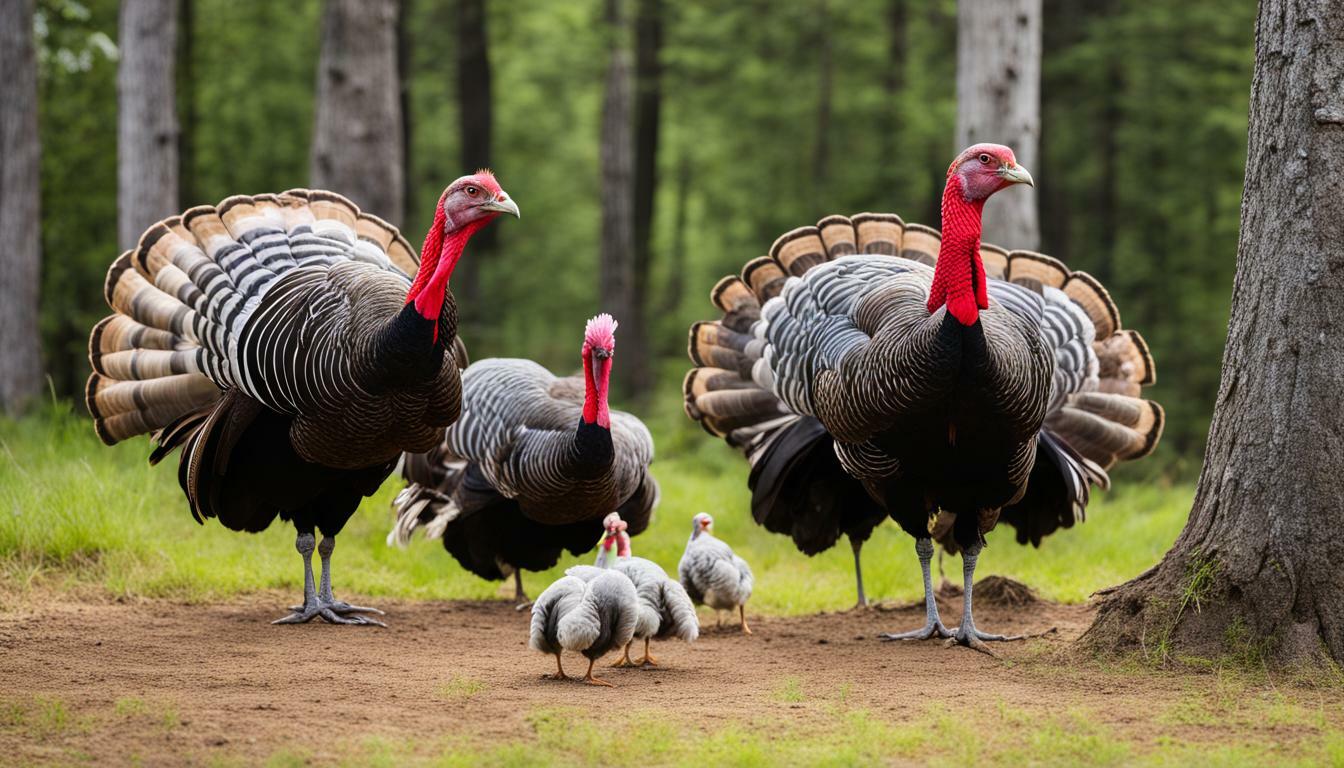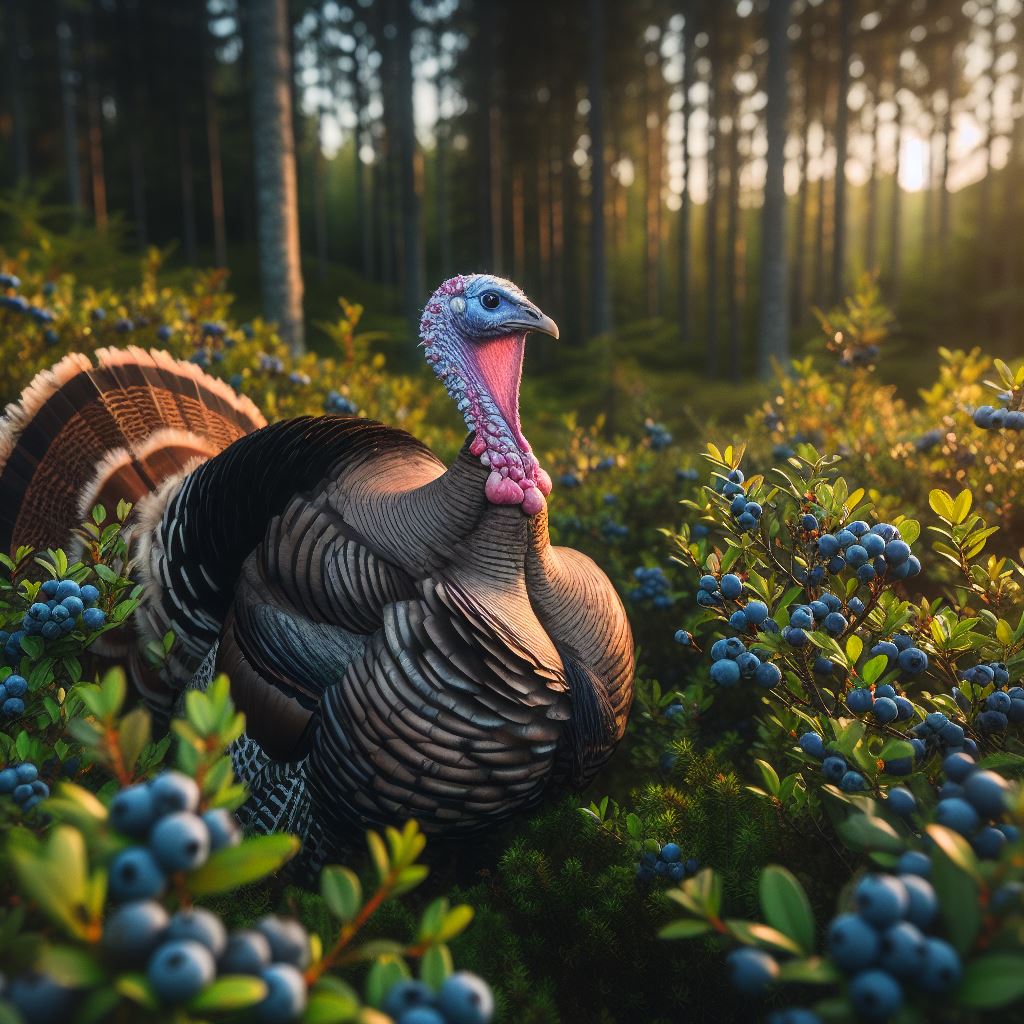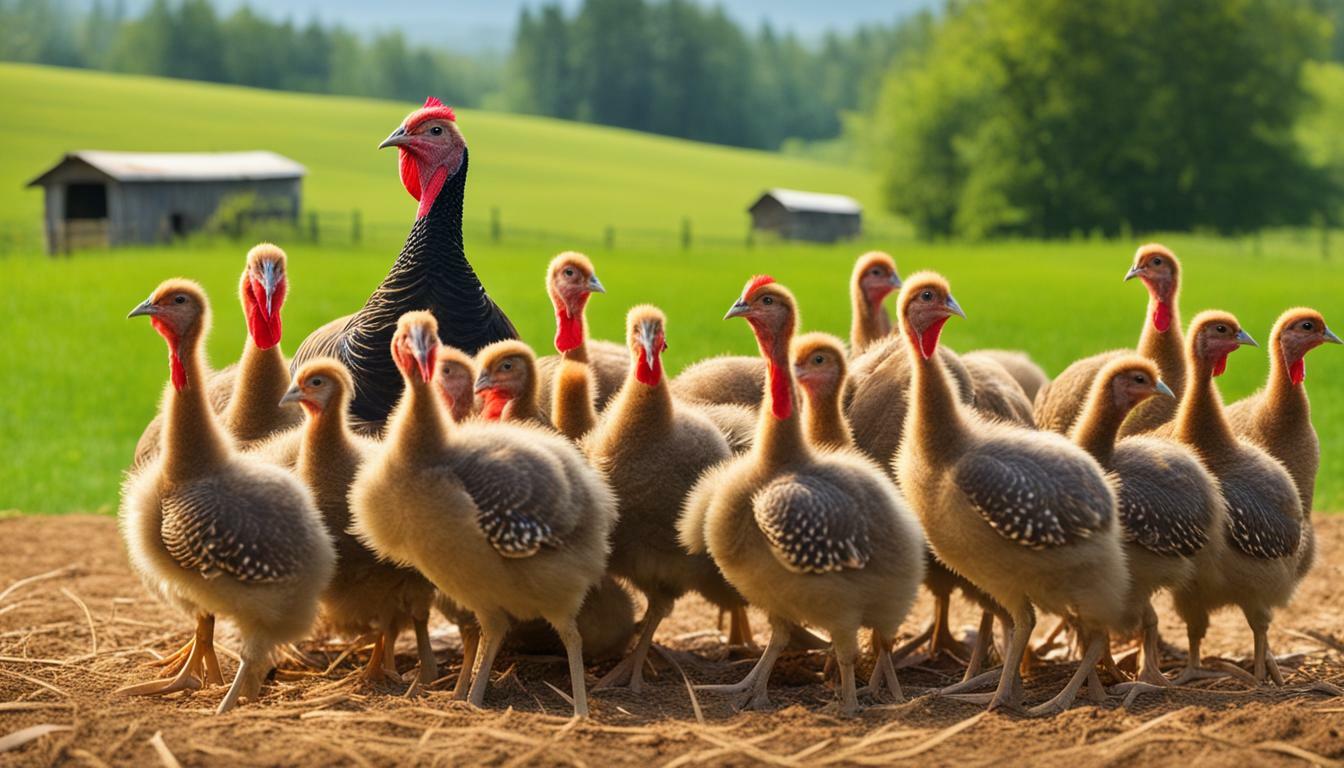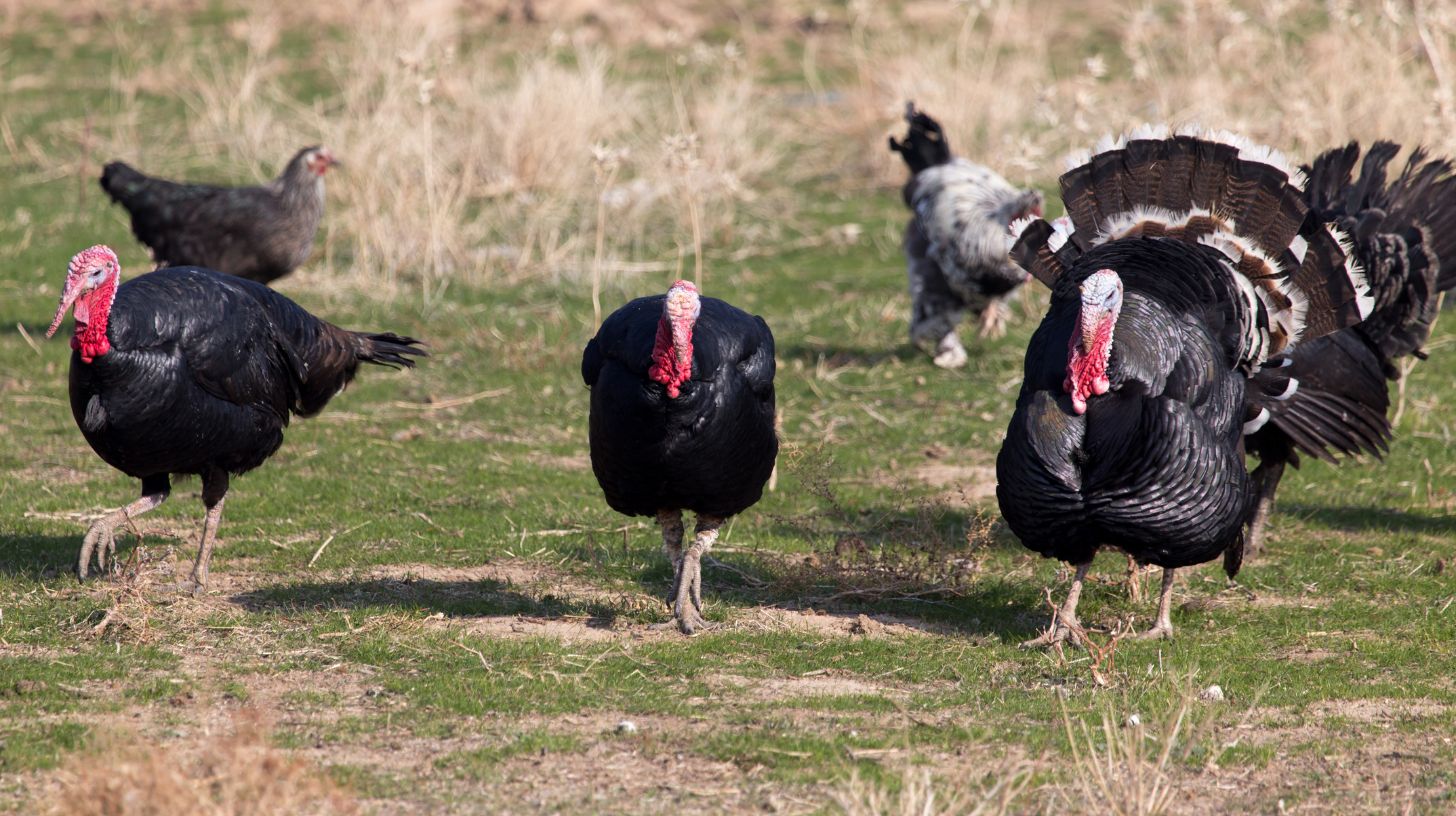Why Do Turkeys Fight? Exploring the Reasons

Table of content:
- Why Do Male Turkeys Fight?
- What Causes Turkeys to Fight?
- Do Female Turkeys Fight?
- How Often Do Turkeys Fight?
- When Do Turkeys Fight the Most?
- Are Turkey Fights Dangerous?
- Can Turkey Fights Cause Injury?
- Do Turkeys Fight to the Death?
- How Long Do Turkey Fights Last?
- Who Wins When Turkeys Fight?
- Conclusion
- Final Thoughts
Turkeys are a common sight in many areas, especially around Thanksgiving. But you may have seen male turkeys aggressively fighting with each other. Turkeys are naturally aggressive and territorial birds that will fight to establish dominance. Here’s a look at why turkeys fight and what you need to know about their aggressive behavior.
Why Do Male Turkeys Fight?
The main reason male turkeys, also called toms, fight is to establish dominance and breeding rights. Like many animal species, turkeys have a social hierarchy with a pecking order. The dominant tom turkeys will have better access to food, water, and mate with more female turkeys. Lower ranked male turkeys are forced away from these resources.
Fighting allows the male turkeys to compete for the top rank in the pecking order. Defeating another tom turkey boosts their status and access to hens for mating. The most aggressive toms that win the most fights become the dominant breeders of the flock.
What Causes Turkeys to Fight?
There are a few key factors that trigger male turkeys to fight with each other:
- Hormones – In the spring and summer, increased testosterone levels cause turkeys to become more aggressive and territorial. This leads to more frequent fighting.
- Establishing Dominance – Young male turkeys will fight existing adult toms to try and take their place as the most dominant member of the flock.
- Mating Rights – Toms fight most aggressively in the spring during the mating season. Fighting determines which males will mate with the most hens.
- Defending Territory – Toms will fight off other males that encroach on their domain or try to steal their hens. Fights break out over turf disputes.
The natural aggression and testosterone levels in male turkeys drive them to compete, fight, and establish territory. The violent fights help determine the breeding order.
Do Female Turkeys Fight?
Female turkeys, called hens, are not as aggressive or territorial as the male toms. Hens do not fight each other for dominance the way that males do.
However, hens may occasionally fight for the following reasons:
- To establish a pecking order
- For access to food
- To defend their nests and poults (baby turkeys)
- If threatened by predators
Overall though, hens live together peacefully in groups and lack the aggressive instinct to fight for breeding rights the way male turkeys do. They do not cause serious injury to one another.
How Often Do Turkeys Fight?
Male turkeys are likely to fight on a daily basis throughout the mating season each spring. The fights start in March or April as hormone levels rise for breeding season.
Younger male turkeys may fight with mature toms multiple times a day to try and improve their status. The most dominant breeding males fight less often to defend their position.
Outside of mating season, turkeys fight less regularly but aggressive incidents can still occur year-round over territory, food, or flock disputes. Sudden conflicts can break out at any time in the wild turkey population.
When Do Turkeys Fight the Most?
Turkeys engage in the most frequent fighting in the spring mating season, typically starting in March or April each year. Longer daylight hours increase testosterone and ramp up their aggressive urges for breeding rights.
The intense fighting continues nonstop throughout the mating season as the toms compete to breed with as many hens as possible. This is when the most violent turf wars break out between males seeking to be dominant.
Fighting starts to decline in late spring or early summer once the mating period ends. However, the territorial tom turkeys may continue to fight sporadically year-round to defend their status.
Are Turkey Fights Dangerous?
Turkey fights can turn intense and cause severe harm. The sharp spurs on a tom’s legs can inflict serious puncture wounds, lacerations, bleeding, and bruising.
Face and head injuries like pecked out eyes are possible. In rare cases turkey fights lead to death from trauma.
Older, unhealthy toms may die from the stress and exertion of prolonged, brutal fights. Injured body parts are also prone to infection.
So while turkeys mostly prefer bluffing displays over actual combat, their fights are aggressive and dangerous with the ability to cause damage.
Can Turkey Fights Cause Injury?
Yes, turkeys often suffer injuries from fighting with other males, especially in the spring breeding months. Some common turkey fight injuries include:
- Puncture wounds – Deep punctures and lacerations from the tom’s spurs
- Pecking injuries – Peck wounds to the body or loss of eyes and vision
- Broken bones – Legs, wings, ribs, and toes can fracture from the blows
- Bleeding/bruising – External and internal bleeding, heavy bruising from the attacks
- Stress – Extreme stress can cause heart attacks and even death
- Infections – Open wounds vulnerable to bacteria causing infections
- Exhaustion – Weakened state from prolonged, tiring fights
Even the dominant tom can sustain damage while defeating rivals. The injuries may impair mobility or ability to breed after an intense fight.
Do Turkeys Fight to the Death?
It’s rare, but turkeys can fight to the point where one bird dies from its injuries. A few scenarios where turkey duels turn deadly:
- An older, weakened tom succumbs after a lengthy battle
- Infection spreads in untreated wounds causing a fatal illness
- Severe punctures or head trauma directly kill the turkey
- Excessive stress and exertion causes a lethal heart attack
- Predators attack an already injured, vulnerable bird
In most cases though, the losing turkey will retreat once it’s clearly defeated to avoid death. But turkeys forced to keep fighting with no escape do risk their lives in the fray. A tom unwilling to back down could pay with fatal consequences.
How Long Do Turkey Fights Last?
Turkey fights can be over in seconds or drag out over an hour or more of back-and-forth. A few factors impact the length of a turkey duel:
- Age and size – Evenly matched toms battle longer than mismatched birds
- Injuries – Severe wounds shorten the fight
- Determination – Some turkeys stubbornly refuse to stop fighting
- Intensity – Brief scuffles end faster than all-out brawls
The longest fights happen when two dominant males are fixated on proving their superiority. These intense battles can wage on and on until one finally collapses in exhaustion.
Most shorter disputes end when the weaker turkey runs away or submits to the victor. But stubborn turkeys may fight relentlessly for 30 minutes or more before an outcome is clear.
Who Wins When Turkeys Fight?
The strongest, most aggressive male turkey usually wins a fight. Traits that help a tom achieve victory:
- Large size – Larger birds overpower smaller opponents
- Age – Adult toms beat younger juveniles
- Strength – Superior muscle and stamina wears down rivals
- Tenacity – Determined turkeys who persistently attack
- Sharp spurs – Longer leg spurs do more damage
- Experience – Seasoned fighters with proven dominance
Even if the combat is close, the tougher tom inflicts more damage and wears down his challenger until they concede. Once a clear winner emerges, the losing turkey will stop fighting to avoid being killed.
Conclusion
Turkeys evolved to be territorial birds that use aggressive fighting to compete for breeding rights. This innate urge to battle for dominance leads to frequent violent clashes, especially among male turkeys in the springtime mating season. Although the fights can turn brutal, most end when one turkey submits to avoid fatal injury. Knowing what drives turkey aggression provides insight into this common but potentially dangerous behavior.
Final Thoughts
- Male turkeys are naturally driven to fight other toms mainly for mating access to hens
- Dominant toms that win more fights get to breed with more females
- Turkey fights cause injuries but rarely result in death for the birds
- Avoid getting in the middle of a turkey skirmish, and keep poults safe from harm
Understanding the turkey’s fighting instinct helps people coexist safely with these large, aggressively territorial birds.
Welcome. I’m Adreena Shanum, the proud owner of this website, and I am incredibly passionate about animals, especially poultry. I founded adreenapets.com as a labor of love, stemming from my desire to share my knowledge and experiences with poultry enthusiasts worldwide.



